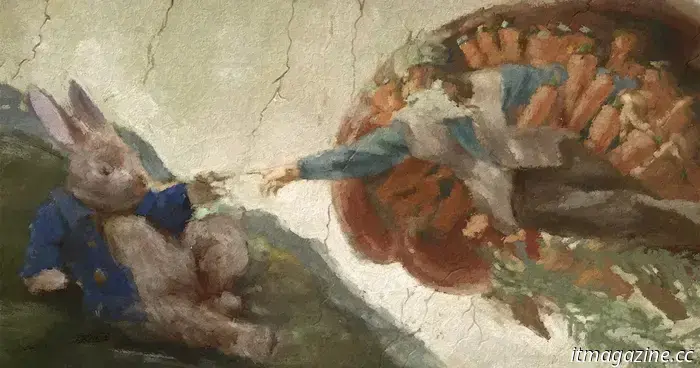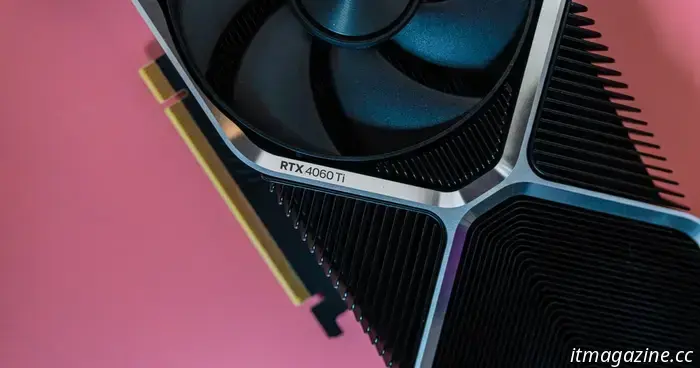
Rusty Rabbit review: quirky new platformer could have benefited from some adjustments.
“Rusty Rabbit required a tune-up, yet there’s still treasure to uncover in its remnants.”
**Pros**
- Quirky worldbuilding
- Surprisingly sharp satire
- Innovative drilling concept
**Cons**
- Movement feels awkward
- Lacking combat mechanics
- Uninspired level design
Some games are like finely-tuned sports cars, while others are just total duds. Rusty Rabbit is neither; it's a collection of scraps.
The protagonist, a gruff yet furry hero in NetEase’s 2D platformer, believes that scrap isn’t inherently good or bad. It’s neutral metal, with its value reliant on how it's assembled and the mechanic’s skill wielding the wrench. If you bring it to an amateur, you might end up with a rusty mess. Hand it to a skilled craftsman, though, and the results could be remarkable. Scrap represents unrealized potential, waiting for someone adept to transform it into something extraordinary.
Rusty Rabbit doesn’t fully escape the junkyard, but it has many of the right elements. It boasts a creative world of junk-loving rabbits, a touching story about parenting, and an adventure hook reminiscent of Drill Dozer. Unfortunately, it's hampered by a malfunctioning engine, as its primary movement, crafting mechanics, and combat all need some refinement from a capable mechanic.
**A Rabbit’s World**
Drawing from a concept by Gen Urobuchi, Rusty Rabbit is set in a dystopian future where humanity has vanished from Earth. In their absence, rabbits have taken over and evolved to see themselves as the dominant species. They misinterpret the trash left by humans to support this belief, considering figures like Peter Rabbit to be divine. Religious movements have emerged, archaeology has morphed into a cult, and scavenger gangs roam Smokestack Mountain in search of valuable metals. This intriguing premise makes Rusty Rabbit instantly lovable, especially when you encounter its fuzzy, irritable rabbits.
Among them is Stamp, a middle-aged mechanic who prefers living among junk over mingling with his fellow rabbits. This loner embarks on a journey to find his estranged daughter, who has left a trail of data logs behind in Smokestack Mountain. While the premise may seem absurd initially, the story carries significant emotional weight. It explores the struggles of a parent trying to understand his child’s world, revealing a generational rift in the process. At times, it becomes genuinely poignant and seems to have been crafted by real parents expressing their insecurities through a seemingly cute video game.
**A Biting Work of Atheistic Satire**
Interestingly, Rusty Rabbit critiques religion within its world, where the Bible is a fictitious storybook taken literally. It challenges religious institutions for establishing a new order based on unverifiable texts. In one segment, I discover that archaeology is now a separate religion, with zealots claiming biomes as sacred by citing trash they've unearthed and misinterpreted as divine relics. The game serves as a sharp, often humorous critique of atheism.
At times, Rusty Rabbit excels beyond its quirky premise, but at other moments it feels like a one-note gag. For example, the most amusing meta-joke occurs when Stamp is voiced by Takaya Kuroda in Japanese and Yong Yea in English, the respective voice actors of Kazuma Kiryu from the Like a Dragon series. This clever casting immediately conveys Stamp's character. However, the humor fades (at least in the English version) as Yea delivers lines in a painfully slow drawl, making the dialogue-heavy opening drag on. The rest of the voice cast encounters similar issues, elongating each line to the point where the novelty diminishes.
NetEase
Such tonal inconsistencies persist throughout the game, as its presentation is uneven. It aims to present an unexpectedly mature experience beneath a fuzzy exterior, yet fails to fully embrace that idea. While the rabbits drop occasional light swearing, the game still feels like a child’s title, with preschool music that seems pulled from a Rugrats episode. The contrast isn’t stark enough to elevate Rusty Rabbit into full-on Adult Swim irreverence, nor does it cater adequately to children. It remains caught in the awkward adolescent phase similar to what Detective Pikachu Returns experienced, unable to tell a story that appeals to concerned parents or their rebellious offspring.
**Surface-Level Platforming**
This imbalance also extends to the gameplay loops in Rusty Rabbit, which seem similarly uncertain. The premise sounds great in theory. Rusty Rabbit is a 2D action-platformer reminiscent of Drill Dozer. Rusty climbs into his reliable mech to explore biomes filled with dirt and crates, searching for stray scrap that he can return home to craft new weapons and mech upgrades. It’s a solid concept that combines the satisfying mechanics of Mr. Driller or Steamworld Dig with a more traditional platform


Other articles
 The RTX 5060 Ti from Nvidia might be 20% quicker than the RTX 4060 Ti.
Nvidia is anticipated to release its new mid-range GPU this month.
The RTX 5060 Ti from Nvidia might be 20% quicker than the RTX 4060 Ti.
Nvidia is anticipated to release its new mid-range GPU this month.
 Xpeng's "Flying Van" can reach Russia
China's Xpeng AeroHT plans to start mass production of a vehicle with a Land Aircraft Carrier (LAC) flying module in the summer of 2026. The car is a six-wheeled electric van with an extendable aircraft controlled via a mobile application.
Xpeng's "Flying Van" can reach Russia
China's Xpeng AeroHT plans to start mass production of a vehicle with a Land Aircraft Carrier (LAC) flying module in the summer of 2026. The car is a six-wheeled electric van with an extendable aircraft controlled via a mobile application.
 10 movies that are worthy of an Oscar for Best Stunt Design
The Oscars have officially introduced a category for Best Stunt Design, and movies such as "The Fall Guy" and "Ben-Hur" would surely have taken home the award.
10 movies that are worthy of an Oscar for Best Stunt Design
The Oscars have officially introduced a category for Best Stunt Design, and movies such as "The Fall Guy" and "Ben-Hur" would surely have taken home the award.
 Leaks about the design of the OnePlus 13T suggest it has strong similarities to the iPhone.
The design of the OnePlus 13T has been revealed several times on the Chinese microblogging platform, Weibo.
Leaks about the design of the OnePlus 13T suggest it has strong similarities to the iPhone.
The design of the OnePlus 13T has been revealed several times on the Chinese microblogging platform, Weibo.
 A mesmerizing time-lapse captures Starlink satellites cutting through space with bright streaks of light.
Astronaut Don Pettit from the space station has released a video displaying streaks of light formed by SpaceX's Starlink satellites.
A mesmerizing time-lapse captures Starlink satellites cutting through space with bright streaks of light.
Astronaut Don Pettit from the space station has released a video displaying streaks of light formed by SpaceX's Starlink satellites.
 TECH5: The top 5 scaleups from DACH join the 'Champions League of Tech'
Five rapidly growing scaleups from the DACH region have secured their place in TECH5 — the “Champions League of Technology.”
TECH5: The top 5 scaleups from DACH join the 'Champions League of Tech'
Five rapidly growing scaleups from the DACH region have secured their place in TECH5 — the “Champions League of Technology.”
Rusty Rabbit review: quirky new platformer could have benefited from some adjustments.
Rusty Rabbit boasts a captivating elevator pitch, but the quirky platformer finds it challenging to match that promise in execution.
